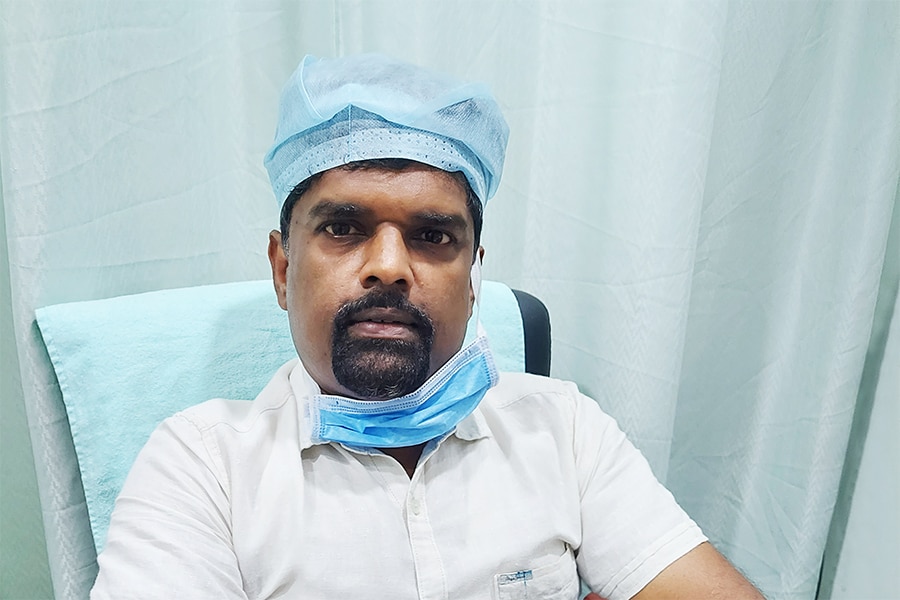Overactive bladder in Covid19
Dr Ajit Thomas, MBBS, MS, MCh (Urology), Consultant & Head of Department - Urology, The Mission Hospital, Durgapur, West Bengal



Overactive bladder (OAB), causes a frequent and sudden urge to urinate that may be difficult to control. You may feel like you need to pass urine many times during the day and night, and may also experience unintentional loss of urine (urgency incontinence).
30 percent of men and 40 percent of women live with OAB symptoms. Many people living with OAB don"t ask for help as they may feel embarrassed. Many people either don"t know how to talk with their health care provider about their symptoms, or they think there aren"t treatments that can help. OAB can get in the way of your work, social life, exercise and sleep. Without treatment, OAB symptoms can make it hard to get through the day without many trips to the bathroom. You may not want to go out or go far from home because you"re afraid of being far from a bathroom. This makes many people feel lonely and isolated.
An overactive bladder can be caused by several things, or even a combination of causes. Some possible causes can include:
• Weak pelvic muscles
• Nerve damage due to trauma and diseased conditions
• Alcohol and caffeine
• Excess weight
• Infections
A note is also made of it being unusual symptoms of covid19- cystitis, hematuria & Overactive bladder.
An overactive bladder is determined by the frequency and urgency of urination. Symptoms include:
• An urgent and uncontrollable need to urinate
• Frequent involuntary loss of urine
• Frequent urination (more than eight times in a 24-hour period)
• Waking up more than once a night to use the bathroom
This condition is very treatable, but it does require assistance from you and your doctor. Treatment for an overactive bladder can range from changing certain behaviors to medications to nerve stimulation (neuromodulation).
For OAB treatment, health care providers may first ask a patient to make lifestyle changes. These changes may also be called behavioral therapy. This could mean you eat different foods, change drinking habits, and pre-plan bathroom visits to feel better. When lifestyle changes aren’t enough, the next step may be to take medicine. There are several drug types that can relax the bladder muscle. These drugs, like anti-muscarinics and beta-3 agonists, can help stop your bladder from squeezing when it’s not full. Some are taken as pills, by mouth. Others are gels or a sticky transdermal patch to give you the drug through your skin.
Another treatment for people who need extra help is nerve stimulation, also called neuromodulation therapy. This type of treatment sends electrical pulses to nerves that share the same path for the bladder. In OAB, the nerve signals between your bladder and brain do not communicate correctly. These electrical pulses help the brain and the nerves to the bladder communicate so the bladder can function properly and improve OAB symptoms.
Healthy lifestyle choices like maintaining healthy weight, regular physical activity, avoid smoking, limiting consumption of alcohol and managing chronic health conditions like diabetes which may contribute in overactive bladder symptoms may reduce risk of overactive bladder.
The pages slugged ‘Brand Connect’ are equivalent to advertisements and are not written and produced by Forbes India journalists.
First Published: Jun 29, 2021, 11:38
Subscribe Now